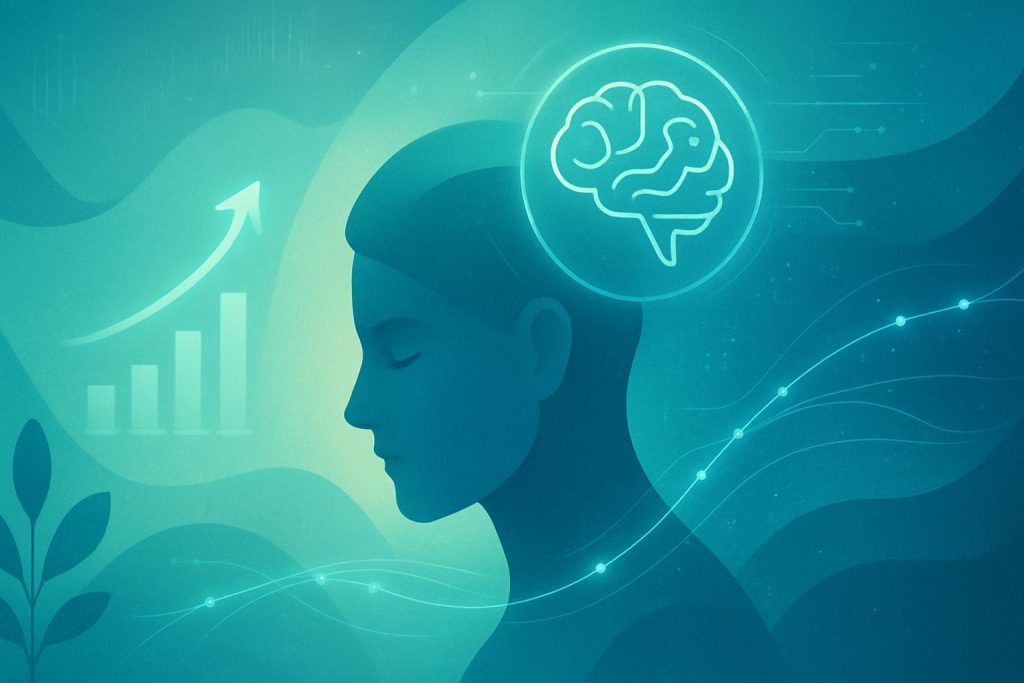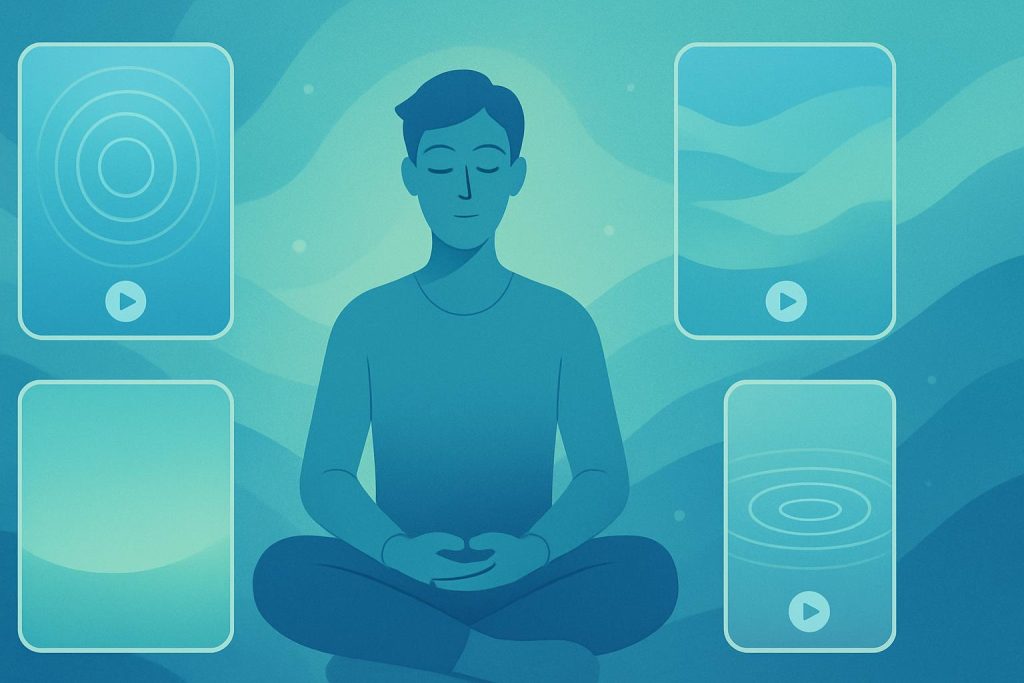Quality sleep is not merely a passive state of rest; it is a critical biological process fundamental to both physical and mental health, a key theme highlighted in our article, Improving your mental health: strategies and AI tools. During sleep, our brains consolidate memories, process emotions, clear metabolic waste, and restore energy levels. Chronic sleep deprivation or poor sleep quality is linked to a myriad of problems, including impaired cognitive function, weakened immunity, increased stress levels, mood disturbances like anxiety and depression, and even long-term health risks. While establishing good sleep hygiene – maintaining a consistent schedule, creating a relaxing bedtime routine, optimizing the sleep environment – is paramount, understanding what happens during sleep and identifying specific issues can be challenging. This is where artificial intelligence (AI) enters the bedroom, powering sophisticated tools and devices designed to monitor sleep patterns, analyze sleep quality, and provide personalized insights for achieving more restorative rest cycles.
Sleep architecture involves cycling through different stages, primarily REM (Rapid Eye Movement) and NREM (Non-Rapid Eye Movement), which includes light and deep sleep. Each stage plays a distinct role in restoration and cognitive processing. Disruptions to these cycles, whether due to lifestyle factors, stress, or underlying conditions like sleep apnea, can significantly impact daytime functioning and overall well-being. Traditionally, understanding sleep patterns required clinical sleep studies (polysomnography), which are often expensive and inconvenient. AI-driven consumer technology now offers accessible ways to gain insights into personal sleep habits. By analyzing data collected through sensors (in wearables or bedside devices), AI algorithms can estimate sleep stages, track duration, identify interruptions, and correlate sleep patterns with lifestyle factors, empowering users with actionable data to improve their sleep.
This article explores how AI-powered tools are revolutionizing sleep tracking and enhancement, providing pathways to better rest. We will cover:
- The importance of sleep quality and different sleep stages for mental health.
- Common sleep problems and the principles of good sleep hygiene.
- How AI analyzes data (movement, heart rate, sound) to track sleep patterns.
- The types of insights provided by AI sleep tools: sleep scores, stage analysis, consistency tracking.
- Examples of AI-powered sleep solutions, including apps like Analyze your sleep patterns with the Sleep Cycle app and wearable devices like Optimize rest using insights from the Oura Ring device.
- Leveraging AI insights to make targeted improvements to sleep habits and environment.
- The limitations and accuracy considerations of consumer sleep tracking technology.
By leveraging the analytical power of AI, individuals can move beyond generic sleep advice and gain personalized, data-driven strategies to optimize their rest and, consequently, enhance their overall mental and physical health.
The crucial link: Sleep and mental well-being
Sleep and mental health share a complex, bidirectional relationship. Poor sleep can exacerbate mental health conditions, while conditions like anxiety and depression often disrupt sleep patterns. Key connections include:
- Emotional Regulation: Sleep deprivation impairs the brain’s ability to process emotions effectively, leading to increased irritability, reactivity, and vulnerability to stress.
- Cognitive Function: Lack of sleep negatively impacts attention, concentration, decision-making, and memory – functions vital for coping with daily demands.
- Stress Response: Sleep helps regulate stress hormones like cortisol. Insufficient sleep can lead to elevated cortisol levels, increasing feelings of stress and anxiety.
- Mental Health Disorders: Sleep disturbances are a common symptom and risk factor for depression, anxiety disorders, bipolar disorder, and ADHD.
- Restoration and Repair: Deep sleep stages are crucial for physical restoration and brain detoxification (clearing amyloid proteins linked to Alzheimer’s). REM sleep is vital for emotional processing and memory consolidation.
Prioritizing sleep is therefore a non-negotiable aspect of maintaining good mental health.
Foundations: Sleep hygiene essentials
Before diving into technology, mastering sleep hygiene basics is crucial:
- Consistent Schedule: Go to bed and wake up around the same time every day, even on weekends.
- Relaxing Bedtime Routine: Wind down for an hour before bed with calming activities like reading, a warm bath, or gentle stretching. Avoid screens.
- Optimize Sleep Environment: Keep the bedroom dark, quiet, and cool.
- Limit Caffeine and Alcohol: Avoid caffeine in the afternoon/evening and limit alcohol, especially close to bedtime.
- Mindful Eating: Avoid large meals or excessive fluids close to bedtime.
- Regular Exercise: Physical activity promotes better sleep, but avoid intense workouts close to bedtime.
- Sunlight Exposure: Get natural sunlight exposure, especially in the morning, to regulate your circadian rhythm.
AI in the bedroom: How sleep tracking works
AI-powered sleep trackers utilize various sensors and algorithms to estimate sleep patterns:
- Actigraphy (Movement Sensing): Many wearables (like smartwatches and rings) and some bedside devices use accelerometers to track movement. Periods of stillness are interpreted as sleep, while movements indicate wakefulness or lighter sleep stages. AI refines these interpretations.
- Heart Rate Monitoring: Heart rate variability (HRV) and resting heart rate (RHR) change predictably across different sleep stages. Wearables like the Optimize rest using insights from the Oura Ring device use optical sensors (PPG) to track these metrics, which AI algorithms analyze to estimate sleep stages (light, deep, REM).
- Sound Analysis: Apps like Analyze your sleep patterns with the Sleep Cycle app use the smartphone’s microphone to listen for sounds associated with sleep patterns, such as snoring, talking, or environmental noises that might cause disruptions. AI analyzes these audio patterns to infer sleep quality and potential disturbances.
- Temperature Sensing: Some advanced wearables also track body temperature fluctuations, which correlate with circadian rhythms and sleep stages, adding another data layer for AI analysis.
AI algorithms integrate data from these sensors, compare patterns against large datasets of sleep studies, and generate personalized reports and insights.
Decoding the data: Insights from AI sleep tools
AI sleep trackers typically provide users with:
- Sleep Duration: Total time spent asleep.
- Sleep Stages: Estimated time spent in light, deep, and REM sleep, often presented graphically.
- Sleep Score: An overall score (e.g., out of 100) summarizing sleep quality based on duration, stages, consistency, and interruptions.
- Consistency Tracking: Analysis of bedtime and wake-up time regularity.
- Interruptions/Wakefulness: Number and duration of awakenings during the night.
- Environmental Factors (Some Tools): Correlation with room temperature, noise levels, or even pre-sleep activities logged by the user.
- Personalized Recommendations: Based on the analyzed data, AI suggests actionable tips, such as adjusting bedtime, modifying the sleep environment, or changing pre-sleep routines.
Leading AI-powered sleep solutions
- Sleep Cycle App: This popular app primarily uses sound analysis via the smartphone microphone to track sleep patterns, identify disturbances like snoring, and wake users during their lightest sleep phase with its intelligent alarm clock feature.
- Oura Ring: A sophisticated wearable ring packed with sensors (PPG for heart rate, temperature sensor, accelerometer). It provides detailed sleep stage analysis, readiness scores based on sleep and activity, and long-term trend monitoring
- Other Wearables (Smartwatches/Fitness Trackers): Many popular devices from brands like Fitbit, Garmin, Apple Watch, and Whoop incorporate AI-driven sleep tracking features, primarily using actigraphy and heart rate data.
Turning insights into action
The true value of AI sleep tracking lies in using the data to make positive changes:
- Identify Patterns: Notice correlations between late-night screen time and reduced REM sleep, or weekend inconsistencies affecting weekday energy.
- Adjust Bedtime: If data shows insufficient deep sleep, try going to bed slightly earlier.
- Optimize Environment: If the app detects noise disturbances, consider earplugs or a white noise machine.
- Experiment with Routines: See how changes like evening meditation or avoiding late meals impact your sleep score and stage distribution.
- Consult Professionals: Share persistent concerning patterns (e.g., very low deep sleep, frequent awakenings suggesting apnea) with a doctor.
Accuracy and limitations
While consumer sleep trackers have improved significantly, they are not medical devices and have limitations:
- Estimation, Not Measurement: Sleep stages are estimated based on algorithms interpreting sensor data, not directly measured like in polysomnography.
- Accuracy Varies: Accuracy can differ between devices, sensor types, and algorithms. Heart rate and temperature data generally improve accuracy over simple actigraphy.
- Focus on Trends: Individual night data might have inaccuracies, but tracking trends over weeks or months provides more reliable insights.
- Potential for Anxiety: For some, constant tracking can become obsessive or anxiety-provoking (“orthosomnia”).
Waking up to better sleep with AI
Enhancing sleep quality is a powerful lever for improving overall mental health and daily functioning. While foundational sleep hygiene practices are essential, AI-powered tools like the Sleep Cycle app and Oura Ring offer unprecedented access to personalized sleep data and insights. By analyzing movement, heart rate, sound, and temperature, these tools estimate sleep stages, track consistency, identify disturbances, and provide actionable recommendations. While acknowledging their limitations and using them as guides rather than definitive medical assessments, individuals can leverage these AI insights to fine-tune their routines, optimize their sleep environment, and ultimately achieve more restorative rest.



